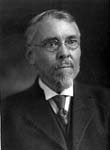 From MINNESOTA GEOGRAPHIC NAMES: Their Origin and Historical Significance by Warren Upham (Minnesota Historical Society, 1920/1969)
From MINNESOTA GEOGRAPHIC NAMES: Their Origin and Historical Significance by Warren Upham (Minnesota Historical Society, 1920/1969) Caribou township, organized January 8, 1908, had a few reindeer, of geographic limitation in the wooded and partly swampy region of northern Minnesota and Canada, named Rangifer caribou. The second word of the name is of Algonquin Indian origin, meaning a pawer or scratcher, in allusion to the habit of this animal in winter, pawing in the snow to eat the reindeer moss beneath.As Greg Breining says in his article A Sense of Place, "Good place names are like that--they may describe a place's shape or the animals that inhabit it. They may tell stories, of the people who settled it, who shaped it, and who fought for it."
Clow township commemorates several brothers of that name, early settlers there, who came from Prince Edward island. [NOTE: My great grandmother was Elizabeth Jane Clow, daughter of Samuel Clow, one of those brothers...]
Information has been gathered from "History of the Red River Valley," two volumes, 1909, the chapter for this county, by Edward Nelson, former register of deeds, being pages 923-966; and from interviews with Mr. Nelson and Axel Lindegard, a merchant in Hallock, the county seat, during a visit there in August 1909, and Edward A. Johnson, clerk of court, and gain with Mr. Lindegard, in a second visit there, September 1916.
Noyes, a station of the Great Northern and Soo railways adjoining the international boundary, was named in honor of J.A. Noyes, the U.S. customs collector there.
St. Vincent, organized March 19, 1880, is opposite to Pembina, N.D. Its name had been earlier given, before 1860, to a post of fur traders here, in honor of the renowned St. Vincent de Paul, founder of missions and hospitals in Paris, who died September 27, 1660, at the age of eighty years.
Of Warren Upham, writer of the above-quoted book, Greg says, "Our sense of place is richly expressed in our names for places. In this regard, Minnesota was fortunate to have Warren Upham, geologist, archaeologist, librarian, and pack rat of obscure facts. It would be hard to imagine anyone better suited to the task of accounting for thousands of state place names."
No comments:
Post a Comment